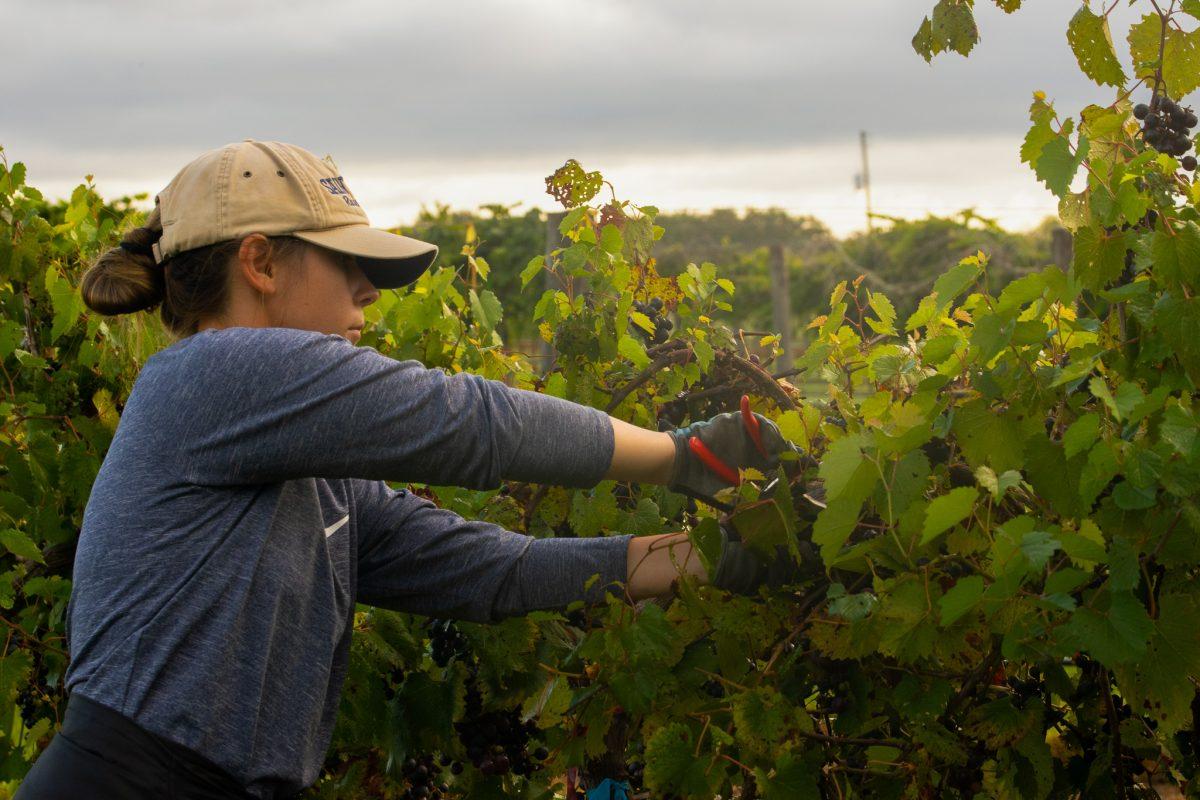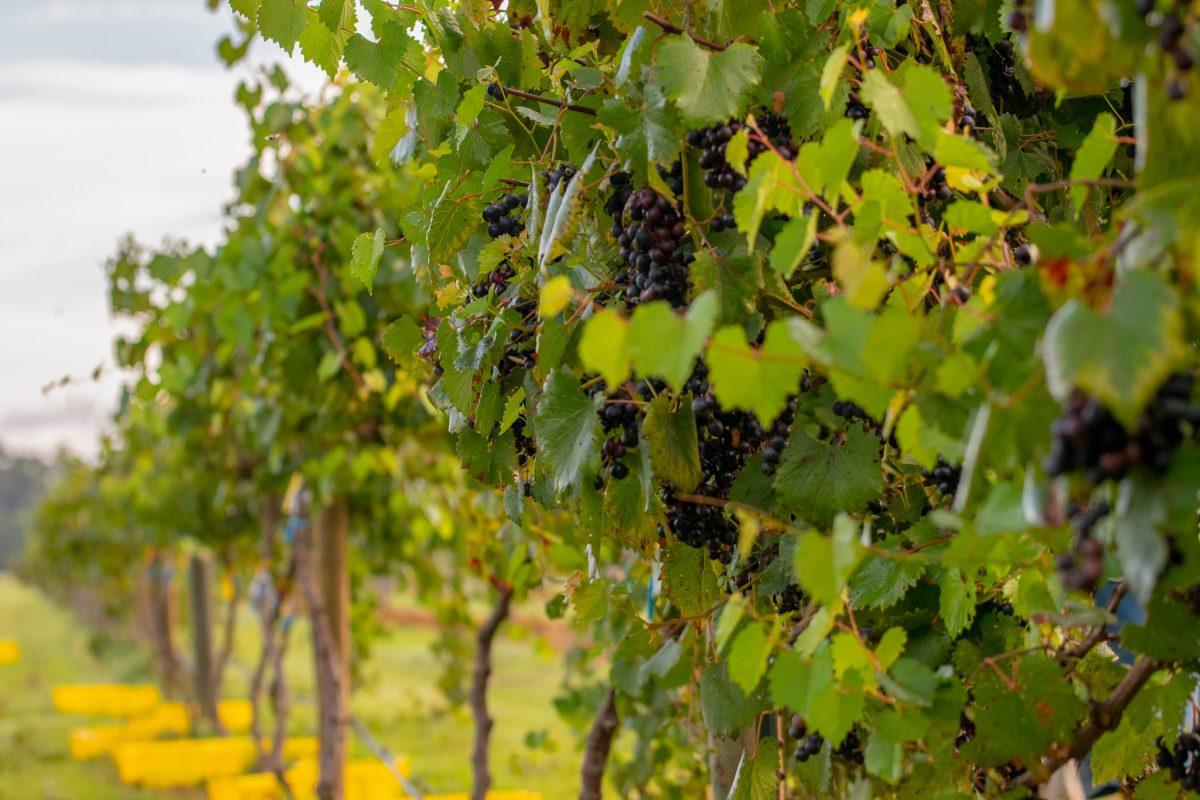Mississippi State University researchers Haley Williams and Eric Stafne are working to pioneer winemaking in the state of Mississippi.
“Saying that Mississippi even has a winemaking industry is generous at best,” Stafne said. “One may look at this and say, ‘Why bother making wine here at all?’ I prefer to see an opportunity.”
MSU opened a research winery in 1975. Upon its opening, interested students began studying enology, the study of wines. In 1976, the Native Wine Act was passed, allowing the commercial production and sale of wines made from grapes native to Mississippi.
While enology research at the original winery has ceased, Williams continues to build upon previous MSU research in pursuit of her Ph.D. in plant and soil sciences. Williams aims to make winemaking possible in a state where winemaking can be difficult for both agricultural and cultural reasons.
“There used to be a lot of wine grape research conducted all over the state by Mississippi State University,” Williams said. “There were even three bunch grape cultivars with wine potential released by MSU in the early 1980s: Miss Blanc, Miss Blue and MidSouth.”
Stafne has worked closely with Williams on this research since 2019.
“I had been working with grapes for several years, but not with wine. (Williams) has a strong desire to make wine, so I let her take that one,” Stafne said.
According to the Mississippi Agricultural and Forestry Experiment Station, bunch grapes are native to the state but have not had much success in large-scale production due to disease and harvesting difficulties.
“Mississippi is not an easy place to grow wine grapes due to high humidity and high rainfall that lead to disease and insect problems,” Stafne said.
Stafne said their work is concentrated on finding ways to make the cultivation of grapes more viable in Mississippi.
“My Ph.D. research involves looking at abiotic stress tolerance of different southern-grown bunch grape cultivars,” Williams said.
Williams is researching how the management of vines can affect fruit quality for winemaking and how environmental conditions affect the vines. Williams is interested in using native, naturally occurring yeasts for fermentation rather than store-bought yeasts.
Williams sees potential in the grape cultivars released by MSU, especially in the MidSouth grape cultivated variety.
“MidSouth is what the majority of my research has been with since coming here, and I’ve found it to have great potential for this region,” Williams said.
Williams said the MidSouth grape is well adapted to heat and humidity and is resistant to diseases that are lethal to other varieties. It is used most commonly in juice, jelly and jam, but also has potential in winemaking.
When made with commercial yeast, the wine has a tart flavor. Recent experimental wines that use naturally occurring yeast have a fruity, raspberry flavor.
Stafne sees changes in cultural attitudes towards winemaking, which he believes will aid in Williams’ efforts to pioneer the production of wine in Mississippi.
“I believe wine is being seen in the context of being a health product when consumed in moderation,” Stafne said. “Antioxidants promote heart health and overall well-being. There are many studies that show connections between moderate wine consumption and longer, healthier life spans.”
Williams said that new research on grape varieties and agricultural practices could expand Mississippi wine production.
“We have definitely seen a growing interest throughout the state from both small-scale hobby growers and those wanting to grow grapes commercially for the purpose of winemaking,” Williams said.
To Williams, the future of winemaking in Mississippi is bright.
“I hope that this research will help to improve production of both grapes and wine in the state and in the region overall, which in turn would improve the economy and well-being of the people of this region,” Williams said. “I also hope to continue to share this research and educate producers or potential future producers via extension service events to help them make informed decisions.”
MSU researchers explore winemaking in Mississippi
Courtesy Photo | Jenny Ryals
Haley Williams is a research associate at Mississippi State University’s South Mississippi Branch Experiment Station in Poplarville, MS.
Wine 2
About the Contributor

Anne Louise Phillips, Staff Writer
Anne Louise Phillips is a sophomore English major. Anne Louise is currently a staff writer for The Reflector.
0
Donate to The Reflector
Your donation will support the student journalists of Mississippi State University. Your contribution will allow us to purchase equipment and cover our annual website hosting costs.
More to Discover
























































































